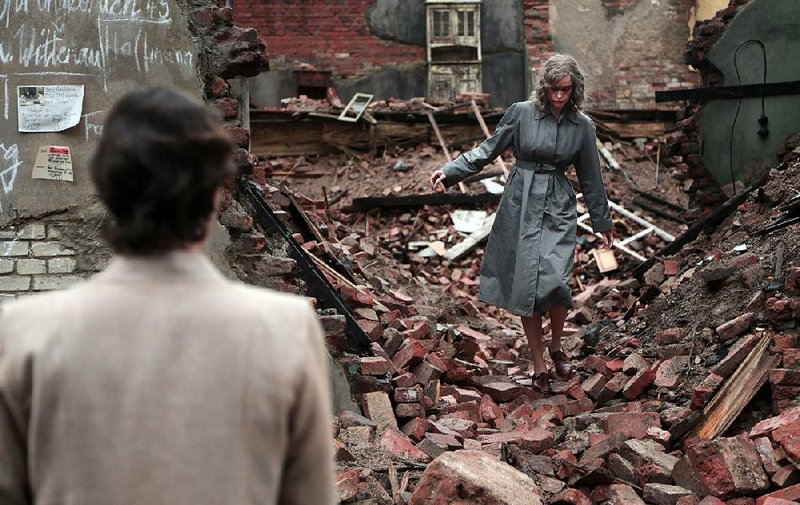Set in the aftermath of the Holocaust, Phoenix takes viewers on a risky journey of self-discovery. Bleak and beautiful, it's a moody drama built on subtle performances and a stunningly well-written script. Setting it apart is an enigmatic ending that allows viewers to come to their own conclusions.
The story starts in shell-shocked Berlin at the end of World War II. Jewish vocalist Nelly (Nina Hoss), returning to the city from time spent at Auschwitz, has been severely damaged by her ordeal. With the generous help of Lene (Nina Kunzendorf), she undergoes extensive reconstructive facial surgery to repair the effects of a gunshot blast. The results produce an attractive woman. But Nelly is having trouble recognizing herself. And she's having trouble reconciling herself with her altered appearance.
Phoenix
90 Cast: Nina Hoss, Nina Kunzendorf, Ronald Zehrfeld, Imogen Kogge
Director: Christian Petzold
Rating: PG-13 for thematic elements
Running time: 98 minutes
In German with English subtitles
Ensconced in a pleasant apartment where Lene encourages her to move to Haifa or Tel Aviv with the help of her ample inheritance (due her upon the deaths of the rest of her family), Nelly has another use for her time. Nearly nonverbal yet fiercely determined, she intends to track down her musician husband Johnny (Ronald Zehrfeld). Lene discourages her, abandoning her usual sympathetic demeanor as she harshly insists that Johnny was responsible for Nelly's arrest and hurriedly divorced her after she was sent to the concentration camp.
Nelly looks mournful, but doesn't seem to accept Lene's accusations. She wanders off in search of Johnny among the sleazy bars in the city's American sector. In a dive called Phoenix, she finds him. He notices her. He does not recognize his wife. But he recognizes something. Speaking to her in formal rather than familiar German, he tells her she bears a resemblance to his wife, whom he claims is dead. He proposes that she pose as Nelly in order to collect her inheritance, which he will split with her.
Nelly, who identifies herself to Johnny as Esther, accepts his proposal. She goes into training to become Nelly, donning clothes and shoes that Johnny has kept, copying examples of Nelly's handwriting, styling her hair and applying makeup in the manner that Nelly preferred.
This is where the film takes a surreal turn. Esther begins to see herself as a different woman from Nelly. She refers to Nelly by name, and tells Lene, "When he speaks of her, I'm really jealous -- of me!" And the more time she spends with Johnny, the more she's convinced he didn't betray her. "I know he loves her," she says to Lene, with "her" meaning "me."
Does he? The arc of this increasingly strange relationship plays havoc with the audience's expectations. Director and co-writer Christian Petzold's skill at playing cat-and-mouse with this pair of motivated survivors may not produce a coherent outcome. But once the audience realizes that there's no clear end in sight, the film fascinates with possibilities.
MovieStyle on 09/04/2015
